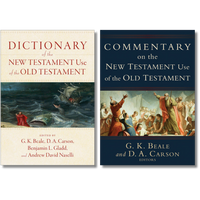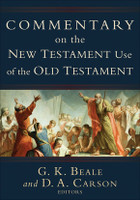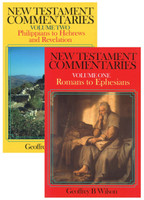Description
John Trapp’s Commentary on the Old and New Testaments, a classic Puritan exposition of Scripture, combines explanation of the text, articulation of doctrine, discussions of controversies, and clarification of cases of conscience. Full of colorful paraphrases and captivating illustrations, Trapp’s pithy style makes him highly quotable and a handy resource preachers. As a bonus, this set contains four practical books by Trapp that are appended to various volumes:
- God’s Love-Tokens and The Afflicted Man’s Lessons
- The Righteous Man’s Recompense
- Theologia Theologiae: The True Treasure; or, a Treasury of Holy Truths Touching God’s Word and God of the Word
- Mellificium Theologicum: The Marrow of Many Good Authors
Table of Contents:
Volume 1 (768 pages) = Genesis to 2 Chronicles
Volume 2 (776 pages) = Ezra to Psalms
+ God’s Love-Tokens and The Afflicted Man’s Lessons
Volume 3 (720 pages) = Proverbs to Daniel
Volume 4 (784 pages) = Hosea to Malachi
+ The Righteous Man’s Recompense
+ Theologia Theologiae: The True Treasure; or, a Treasury of Holy Truths touching God’s Word and God of the Word
Volume 5 (864 pages) = Matthew to Revelation (864 pages)
+ Mellificium Theologicum: The Marrow of Many Good Authors
Endorsement
“Trapp is my especial companion and treasure; I can read him when I am too weary for anything else. Trapp is salt, pepper, mustard, vinegar, and all the other condiments. Put him on the table when you study, and when you have your dish ready, use him by way of spicing the whole thing.” - Charles Spurgeon
About the Author
John Trapp (1601–1669) was a star pupil and scholar who became headmaster of the Free School at Stratford upon Avon at the age of 24. One of his pupils, William Shakespeare’s son-in-law, described him as “second to none for his piety and learning.” He served the school into old age while also ministering at local churches and for the Parliamentarian army. He labored on these commentaries (originally in ten volumes) in any spare time he had until their publication completed in 1662.






